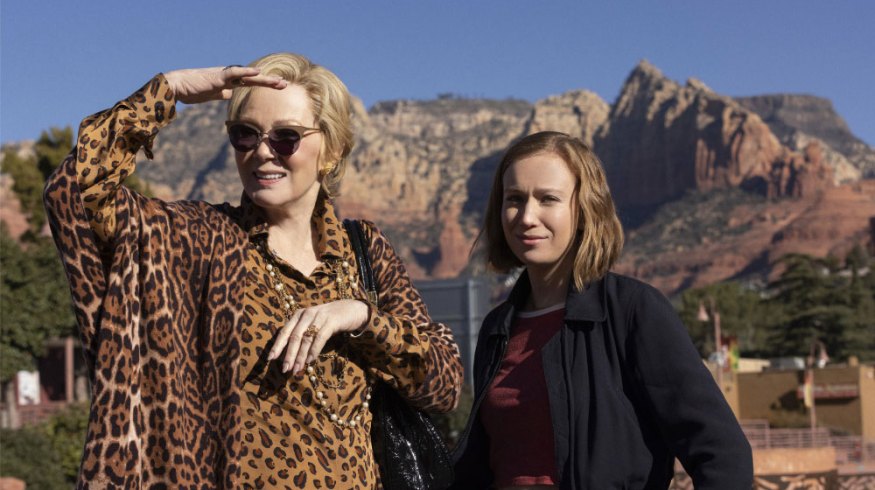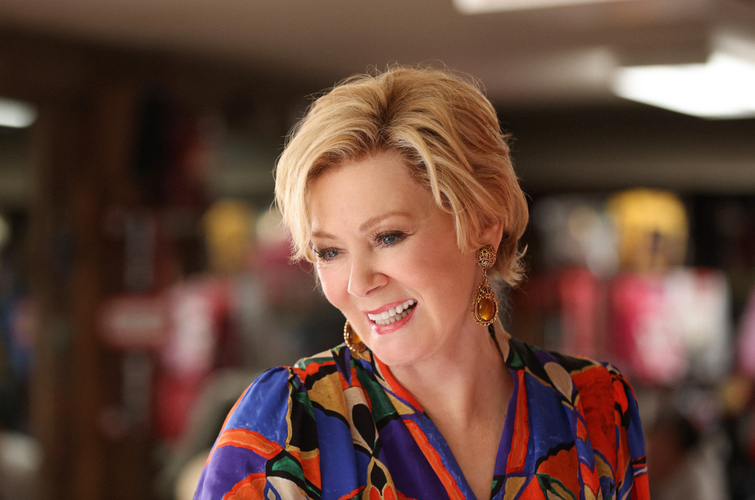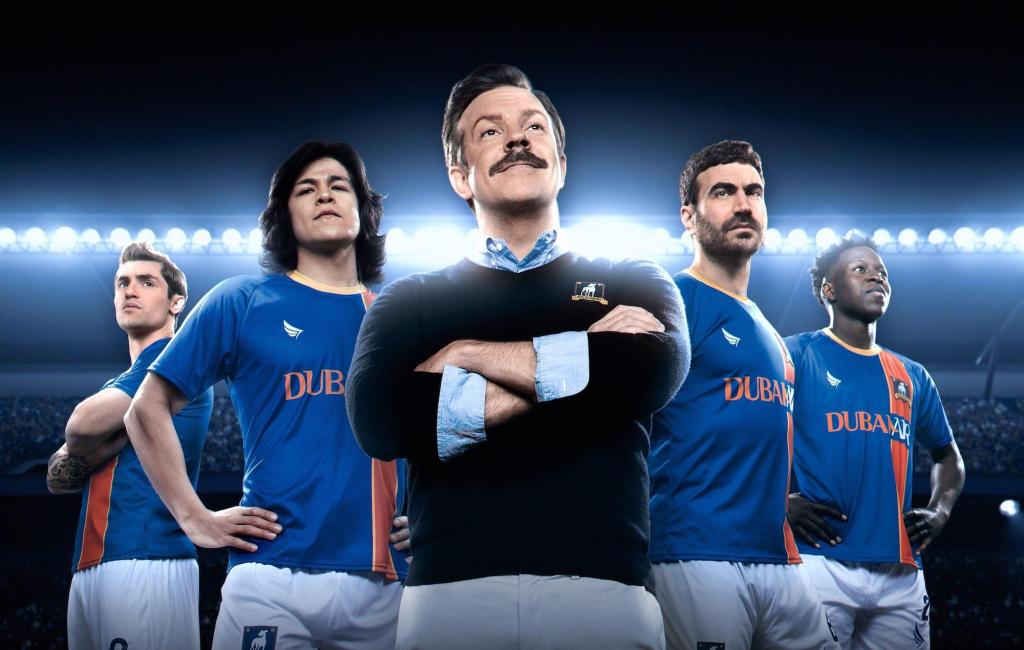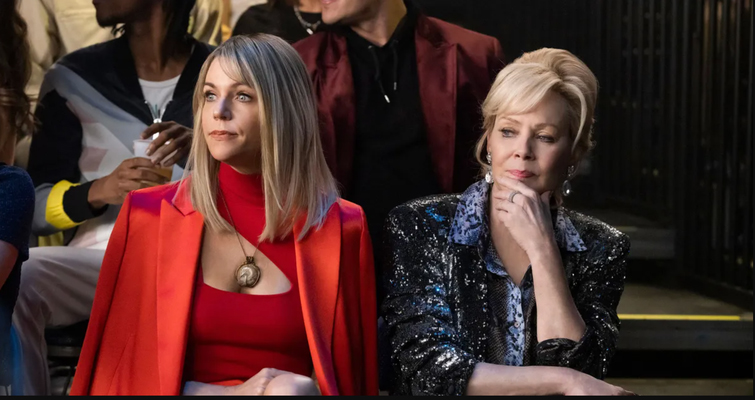
How Hacks Embraces the Ted Lasso Effect
A deep-dive into the surprisingly uncynical world of HBO’s Hacks and Apple TV+’s Ted Lasso, and how one embraces the other.
I do always remember this thing he told me about this one team. Their motto was trust the process. And I remember thinking that’s a good philosophy. Ya know, like every game, win or lose, it’s just part of it. You’re on the path to something bigger so the individual setbacks don’t get you down. So, maybe just trust the process.
– Hacks
Those words could be spoken by Ted Lasso as he drinks a pint with Coach Beard. Or, perhaps in Rebecca’s office offering a reason to believe in the future of AFC Richmond as a Premier League leader. But it’s not.
Those lines come from Hacks. A series that centers around the professional relationship between a young comedy writer and a legendary stand-up comedian.

From the outside looking in, both series couldn’t be more different. Ted Lasso is set in the male-centric world of professional soccer. A fish-out-of-water story that follows an out-of-his-depth American football coach unexpectedly recruited to coach an English Premier League soccer team. Ridiculed and undermined, he eventually overcomes skepticism to win over the hearts of the owner, team, and fans.
Hacks is decidedly female-driven. Stand-up comedian Deborah Vance needs to keep her relevance since the casino where she performs wants to cut back on her performances. Brash comedy writer Ava cannot find work because of an offensive tweet. Her only option? To work for Deborah, who reluctantly hires her to revamp her material. Over time, they grow in respect and empathy for one another.
When Optimism and Empathy Reign

Ted Lasso and Hacks both share something unique in the world of comedy—optimism and empathy. Optimism stems from believing that your efforts will result in positive, desirable, and favorable outcomes, even when it’s hard and the odds aren’t in your favor.
There’s a moment in Ted Lasso’s Season 1 finale when optimism and empathy are fully displayed. The team is demoralized, losing badly at halftime. Ted enters the locker room under a handmade sign that says “Believe” and quietly and confidently expresses this:
So, I’ve been hearing this phrase you all got over here that I’m not too crazy about—it’s the hope that kills you. You all know that? I disagree. I think it’s the lack of hope that comes and gets ya. See, I believe in hope. I believe in believe.
– Ted Lasso
Humor is generally based on cynicism or chaos. A pie in the face, an unexpected squirting flower, a slip on a banana peel. From Archie Bunker to Rosanne to Jerry Seinfeld, most lead comic characters have an expectation that the outcome will be bad or you’ll be disappointed. Such as this joke: You want to know why New Yorkers are so cynical? The light at the end of the tunnel is New Jersey.
When Ted Lasso burst onto the scene in August 2020, it wasn’t exactly an optimistic time. It was five months after the eruption of Covid-19, people were locked down, and businesses were closing abruptly. The economy was in a freefall.
But, here’s a main character undergoing immense turmoil himself—in the midst of a divorce, hired to fail, riddled with anxiety, ridiculed in the press, and professionally unfamiliar with the rules that he’s tasked to master.
However, he’s guided by kindness and faith, and regularly engages in emotional conversations with teammates, superiors, and friends.
In the most masculine of worlds—the locker room, the playing field, the executive offices, the local pub—he bakes biscuits, advises on relationships, and inspires a narcissist to be a team player. He respects his female boss and routinely upends any notion of toxic masculinity, even as he represses his trauma.
Remember, this is storytelling. There must always be conflict and flaws in every character, even the kindest, most compassionate, and most empathetic.
Hacks has a sense of optimism and empathy, yet approaches it from a completely different angle. Deborah Vance is no Ted Lasso—brash, blunt, independent, and exacting, she’s not baking Ava a homemade biscuit or giving credit when due.
But, want to talk about optimism? Jean Smart, who plays Deborah Vance, is 70-years-old. Let’s say that again. In a hit comedy series, the lead character is a 70-year-old woman regarded as sexual, intelligent, funny, and most impressive of all, in charge.
Her character rose through the comedy ranks in the 1970s. It was challenging for women at that time to be taken seriously, let alone be successful. Despite personal losses and career setbacks, she bounced back at every turn, not only surviving but thriving.
Characters with the Courage to Care

The second season of Hacks starts with Deborah at a low point, losing her coveted position headlining in a popular Vegas hotel, preparing to test new material on the road, and coming to a painful misconception on why a personal relationship with a man she desires didn’t work out.
There’s a moment where she steps up emotionally for her often estranged daughter DJ, reluctantly attending her son-in-law Aiden’s UFC fight. He’s a brutal underdog, something Deborah can relate to immensely. Emboldened to flip the script of his certain defeat, she barrels down courtside and gives the weak and beaten Aiden a pep talk.
The cynical take would be to play Deborah’s galvanizing as the brunt of a joke. Have her give a rousing speech, only for him to get his ass kicked. Instead, the Lasso effect kicks in—the embracing of optimism, the courage of the writers to give her a win, and it not feel predictable but inevitable.
Deborah is crafted as a character who rises when her expectations are at their lowest.
All Swear Ted Lasso Is an Effing Delight
Both shows live in rarefied air, embraced by critics and fans alike. For one such fan, Crisann Morgan, Ted Lasso gave her a sense of optimism and hope, making her battle with cancer lighter.
Crisann told us her friend, actor Todd Stashwick knew how meaningful the show was to her during this challenging period and he had a connection to several of the actors involved with Ted Lasso. In fact, Todd was the one who suggested to the producers that Hannah Waddingham would be perfect for Rebecca.
Crisann Morgan on Ted Lasso.
For the CBC, Hannah Waddingham discussed with Tom Power what it meant for her to know that the show had such an impact on Crisann.
I Believe in Believe
Optimistic storytelling is more than putting your characters in the position of seeing the bright side of a situation or always expecting good things. It’s also about understanding what brought them to this point. Past experiences, wounds, and flaws that contributed to their growth and worldview.
An optimist thinks about what they did to make something good happen, not relying on luck or fate. The same holds for the writing process. Both Ted Lasso and Deborah Vance have consistent and dependable parts that the storytellers have utilized and baked into the mix.
Even at their most vulnerable, these characters seldom give in to cynicism. They may spring into a misguided action, but it comes from knowing their sense of right and wrong and what will improve the situation. They’re survivors not because they haven’t tasted defeat but because they never accepted loss as the finish line. And, that’s not just optimism, that’s experience.
So, when a character such as Deborah Vance gives this advice in a dive bar, you should bullishly take it.
Oh no, you can’t trust them to make a good martini here. Only order white wine in a bar on the road. Cheap red is always terrible, but a cheap white you can live with because it’s chilled.
– Deborah Vance from Hacks
For more storytelling inspo, check out these beauties:
- The 5 Genre Filmmaking Elements Every Rom-Com Needs
- Making Your Own Fantasy Film: A Field Guide
- Screenwriting: The Goal of Dialogue
- Why Every Good Action Film Is Actually a Love Story
- Why It Doesn’t Matter That WW84 Failed at Storytelling
Cover image via HBO Max.





